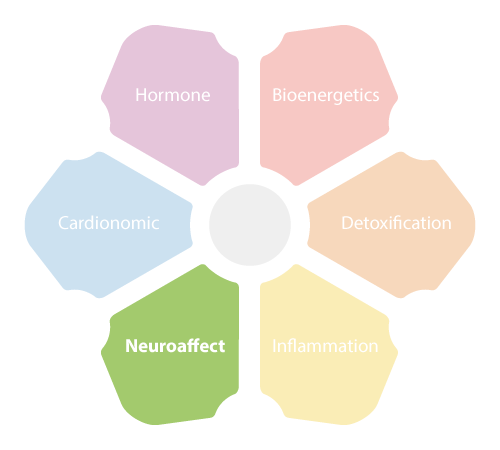 Are you aware that the majority of adults need an average of between seven and nine hours of sleep per day in order to function properly? And did you know that your body uses this period to heal itself? Or that a disruption to your normal sleep cycle could potentially affect numerous aspects of your health? Daylight savings time may have originally seemed like a good idea, but it actually affects sleep cycles across the world negatively.
Are you aware that the majority of adults need an average of between seven and nine hours of sleep per day in order to function properly? And did you know that your body uses this period to heal itself? Or that a disruption to your normal sleep cycle could potentially affect numerous aspects of your health? Daylight savings time may have originally seemed like a good idea, but it actually affects sleep cycles across the world negatively.
The idea was first conceived by Benjamin Franklin in 1784 who suggested that Parisians, by rising one hour earlier during the summer months, could save a remarkable sum of money on candles. It was only in 1895 that George Hudson, a New Zealand entomologist, first presented the idea of daylight savings time in order to have more daylight during the evenings.
However, the idea of daylight savings time didn’t take off in Europe and the United States until during World War 1. Although most states in the USA adhere to daylight savings time, certain states do not observe it, including Arizona and Hawaii.
Changing time zones - or changing to daylight savings time - affects your circadian rhythm, or your internal clock. Your circadian rhythm plays an important role in sleep regulation, timing your periods of sleepiness and wakefulness.
Generally speaking, we tend to have our strongest sleep drive between two and four in the morning, and then again between one and three in the afternoon. This does, however, differ from one person to the next, as some people tend to be morning people or evening people. Whatever the time of day or night you experience these dips, however, these dips are less intense when you have had enough sleep, while they become more intense if you have been deprived of sleep. Your circadian rhythm also has the effect of causing a higher rate of alertness at certain times of the day. The circadian clock typically runs on a 24-hour schedule.
Your circadian rhythm plays an important role in regulating metabolism in many of your body systems and organs as well. Amongst these are included the liver, heart, adipose tissue, and skeletal muscle.
It plays a major role in your heart’s responsiveness to fatty acids. A dysregulation here could affect heart function and also result in insulin issues, glucose intolerance, heart conditions, glucose intolerance, and dyslipidemia, amongst others.
Our bodies, for the most part, adjust their sleeping period according to light availability. The advent of work times and alarm clocks has resulted in our bodies having adjusted our circadian rhythms to these clocks, instead of light to a certain extent. But daylight savings time results in an abrupt readjustment to our sleep times, and our bodies may suffer the consequences. We are subjected to these abrupt time changes twice each year.
Certain countries have stopped implementing daylight savings time due, in part, to numerous studies indicating that the effects of daylight savings time on your health are controversial at best. It seems that your body may never fully adjust to the hour shift associated with daylight savings time. Unsurprisingly, many of the issues are also associated with sleeplessness.
These are some of the ways daylight savings time may end up affecting your health:
Changing your sleep and waking cycles affects not only your quantity but also quality of sleep. This may result in feeling tired, listless, stressed, and distracted. This could potentially lead to more accidents in the workplace and more road accidents. Add to this that sleep deprivation has many health-related consequences that may not seem related.
A study on the incidence of heart attacks found that there is a 25% increase in the number of heart attacks in spring when daylight savings time starts. Fall, however, when daylight savings time ends, sees a 21% drop in heart attack cases.
The implementation of daylight savings time is linked to the incidence of ischemic stroke. Disturbed sleep patterns are associated with high blood pressure and mental health issues, which are risk factors for heart attacks and strokes as well.
Cluster headaches are closely associated with sleep disorders. These types of headaches seem to increase when daylight savings time is implemented.
Numerous studies have indicated a close correlation between the onset of depressive episodes and the shift back to standard time.
An area of the hypothalamus, the Suprachiasmatic Nucleus (SCN), controls your circadian rhythm. Here, a group of cells responds to light signals, when it is very bright or dark. These signals travel from the optic nerve, which is found in the eye, to the SCN and tell your body’s internal clock that it is time to wake up. The SCN also signals various parts of the brain that have hormone controlling functions and that regulate your body temperature.
 The SCN, due to its being in your hypothalamus, is a component of the Hypothalamic-Pituitary-Adrenal (HPA) axis and thus plays a significant role in your body’s NeuroEndoMetabolic (NEM) Stress Response. The Neuroaffect circuit is the part of your NEM describing brain function.
The SCN, due to its being in your hypothalamus, is a component of the Hypothalamic-Pituitary-Adrenal (HPA) axis and thus plays a significant role in your body’s NeuroEndoMetabolic (NEM) Stress Response. The Neuroaffect circuit is the part of your NEM describing brain function.
Exposure to light during the morning results in a rise in your body temperature and an increase in hormone production. One of these hormones is cortisol which is primarily manufactured in the adrenal glands. In the same way, at night, darkness increases your body’s melatonin production, prompting sleepiness.
When something happens to upset your circadian rhythm, such as daylight savings time, for example, it results in sleep issues and stress, thereby having an effect on your NEM and worsening stress-related issues like adrenal fatigue.
Sleep issues act like a stressor, resulting in elevated cortisol and epinephrine levels. Constantly elevated levels of these two hormones could potentially result in sleep issues.
Furthermore, dehydroepiandrosterone (DHEA) hormone is produced in the adrenals and is the precursor to cortisol. During times of stress, increasing amounts of DHEA is converted into cortisol and may stimulate the release of norepinephrine. Norepinephrine is a sleep-inhibiting hormone.
Melatonin production is also negatively affected by increased cortisol production. Elevated amounts of this hormone, which is affected by light, are usually produced during the evening and help instigate sleep. When your melatonin levels are lower than they should be, sleep issues may result. This may contribute to a disruption of your Neuroaffect circuit.
There are many conditions that could result from a disrupted Neuroaffect circuit or sleep issues. One of these is anxiety, a feeling where physical and psychological issues tend to become exaggerated. Another is depression, which is often due to an imbalance in serotonin and dopamine levels. Furthermore, stress may lead to neurodegeneration that, in turn, may result in age-related chronic conditions such as Alzheimer’s, for example.
Other health conditions that could be linked to sleep issues resulting from daylight savings time include:
Research suggests that daylight savings time may very well have an effect on your health. You may not be able to stop daylight savings time, but you can try to make your sleeping experience one that is as comfortable as possible. Here are a few tips to improve the quality of the sleep you do get:

Finally, just try to plan extra time to sleep into your schedule at this time of year. Daylight savings time is not something many of us look forward too, but there are steps you can take to try to minimize the loss of sleep associated with it and all the health issues that entails.
© Copyright 2020 Michael Lam, M.D. All Rights Reserved.
Adrenal fatigue is a health condition that has no simple cause. Multiple factors come into play and cause stress in the body before your adrenals ultimately start wearing out. Daylight savings time, however, could certainly be one of the factors that worsen stress and other related health conditions.
